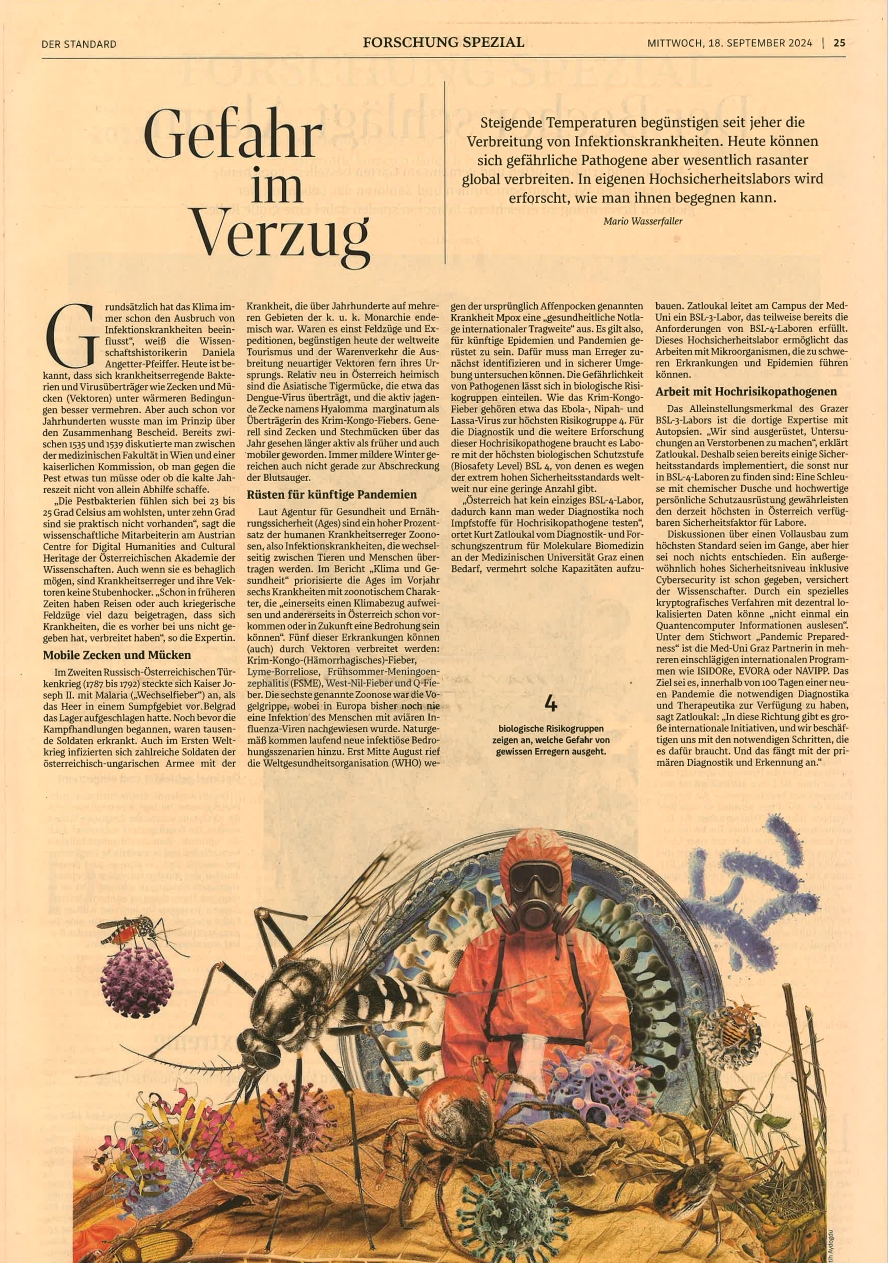Preparing for future pandemics and working with high-risk pathogens at BBMRI.at partner Med Uni Graz
Climate change not only leads to extreme weather events, but also to an increased risk of infectious diseases. Under the leadership of Kurt Zatloukal, former BBMRI.at Coordinator, highly infectious material is being researched in the high security BSL-3 Laboratory of the Medical University of Graz. A recent article in the Austrian newspaper “der Standard” reports on the work in the laboratory.
Mosquitoes, pathogens & zoonosis
Ticks and mosquitoes in particular, which transmit dangerous viruses, are benefiting from rising temperatures. New species such as the Hyalomma tick, which carries Crimean-Congo fever, and the Asian tiger mosquito, which transmits the dengue virus, have already established themselves in Austria.
A high percentage of human pathogens are zoonoses, i.e. infectious diseases that are transmitted between animals and humans. It was not until the summer of 2024 that the WHO declared a health emergency of international concern due to the disease known as monkeypox.
Preparing for future pandemics and BSL-3 laboratories
Developments such as these require increased scientific understanding of new pathogens and how to combat them in order to be prepared for future pandemics.
Laboratories with the highest biological safety level (BSL-4) are required for the diagnosis and further research of these high-risk pathogens that can cause epidemics and pandemics. However, due to the extremely high-safety standards, there are only a small number of BSL-4 laboratories in the world.
BBMRI.at partner Med Uni Graz not only operates one of Europe’s largest biobank but also a BSL-3 laboratory. Under the direction of Kurt Zatloukal, the former BBMRI.at Director and Coordinator, the laboratory works with highly infectious pathogens. As Austria does not have a BSL-4 laboratory in which particularly dangerous pathogens such as the Ebola virus can be examined, the laboratory in Graz is in particular demand. It is one of the safest facilities in Austria and already meets many of the requirements of a BSL-4 laboratory. “Without such facilities, diagnostics and vaccines for high-risk pathogens cannot be tested and developed”, emphasizes Zatloukal. In order to prepare for future pandemics, the laboratory at the Institute of Pathology at Med Uni Graz cooperates with international programs such as ‘ISIDORe’, ‘EVORA’, and ‘NAVIPP’. The aim is to provide appropriate countermeasures within 100 days of the outbreak of a new pandemic.


